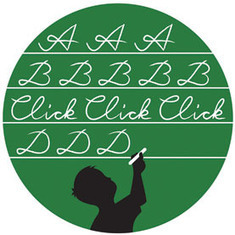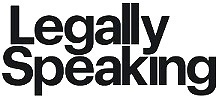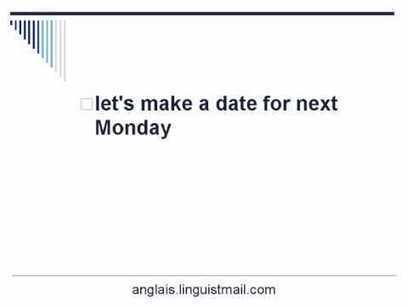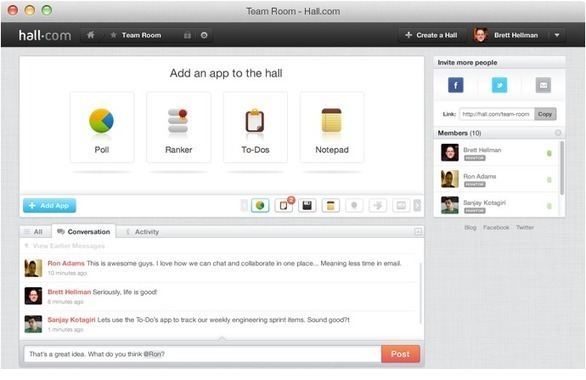IATIS is pleased to announce the online publication of the eighth issue of New Voices in Translation Studies, which marks an unprecedented collaboration with the International Postgraduate Conference in Translation and Interpreting (IPCITI): New Voices 8 largely consists of the selected conference proceedings from IPCITI 6, titled "From Reflection to Refraction: new perspectives, new settings and new impacts" and held at the University of Manchester in October 2010. In total, the issue consists of ten articles by young researchers and twelve abstracts of recently submitted Ph.D. theses.
The free, open-access journal is available through the IATIS website
http://www.iatis.org/index.php?option=com_k2&view=item&id=488:current-issue8-2012&Itemid=86
New Voices is a free, open-access journal available through the IATIS website
http://www.iatis.org/index.php?option=com_k2&view=item&id=488:current-issue8-2012&Itemid=86
Phrae Chittiphalangsri, Sue-Ann Harding, Dorothea Martens Editors
Farah Abou Bakr, David Charlston, Elena Davitti, Kyung Hye Kim, Ruselle Meade, Kelly Pasmatzi, Maria Aguilar Solano IPCITI Editors CONTENTS of New Voices 8 (2012) include:
Regular Papers
"When Skopos Meets Logical Meaning in a Korean Bible Translation: implications of using clause combination as an analytic tool"
Gyung Hee Choi, University of New South Wales, AUSTRALIA
"Contrasting Visual and Verbal Cueing of Space: strategies and devices in the audio description of film" Maija Hirvonen, University of Helsinki, FINLAND
IPCITI 2010 Proceedings
"Creating Personae: the translator's afterword in Japanese translations of teen fiction"
Isabelle Bilodeau, Nagoya University, Nagoya, JAPAN
"Online Paratexts and the Challenges of Translators' Visibility: a case of
women translators of the Quran"
Rim Hassen, University of Cambridge, U.K.
"Found in Translation: Franco-Irish translation relationships in nineteenth-century Ireland"
Michèle Milan, Dublin City University, IRELAND
"Publishing Contemporary Foreign Poetry in Post-War Italy: a Bourdieusian perspective on Mondadori and Scheiwiller"
Mila Milani, University of Manchester, U.K.
"Translating the Greek Civil War: Alexandros Kotzias and the translator's multiple habitus"
Kalliopi Pasmatzi, University of Manchester, U.K.
"Co-constructing Dyadic Sequences in Healthcare Interpreting: a multimodal account"
Sergio Pasquandrea, Università per Stranieri di Perugia, ITALY
"Chasing Ricoeur: in pursuit of the translational paradigm"
Deborah M. Shadd, University of Ottawa, CANADA
"Translating the Author-Function: the (re)narration of Christa Wolf"
Caroline Summers, University of Manchester, U.K.
Moncton (Nouveau-Brunswick, Canada)
les 1, 2, 3 novembre 2012 Les activités de traduction et d’interprétation dans des contextes de multilinguisme officiel (où au moins deux langues sont désignées officielles) sont le quotidien de bon nombre de pays. Or rares sont les colloques qui réunissent les gestionnaires, praticiens et scientifiques de la traduction afin de leur permettre de réfléchir ensemble sur les expériences politiques, institutionnelles et socio-culturelles qui sont le propre de ces contextes. Alors que le thème de la traduction dans des contextes multilingues et multiculturels a suscité beaucoup d’intérêt dernièrement1, les discussions n’ont pas eu pour objet explicite les contextes de multilinguisme officiel ou institutionnel. Ce colloque souhaite fournir l’occasion d’échanger sur la spécificité de la traduction et de l’interprétation dans des contextes de multilinguisme officiel ou institutionnel et les « effets de traduction » (Simon 1996) qui s’y font ressentir. Bon nombre de pays du monde sont officiellement multilingues : l’Afghanistan (le pachtou, le dari), la Belgique (le néerlandais, le français, l’allemand), le Cameroun et le Canada (l’anglais, le français), la Finlande (le finnois, le suédois), l’Inde (23 langues officielles), l’Irlande (l’irlandais, l’anglais), Israël (l’hébreu, l’arabe), la Norvège (les deux variétés du norvégien), le Pakistan (l’ourdou, l’anglais), les Philippines (l’anglais, le filipino-tagalog), l’Afrique du Sud (11 langues officielles) et la Suisse (le français, l’allemand, l’italien), entre autres pays, de même que bon nombre d’organisations internationales (p. e. l’Organisation des Nations Unies, la Commission européenne, Amnesty International). Les interventions traiteront au moins un aspect de l’interaction entre la traduction et le multilinguisme officiel, par exemple l’institutionnalisation de la traduction dans les pays et les organisations identifiés ci-dessus de même que dans d’autres pays et organisations, voire dans les villes bilingues. Les communications permettront aux participants de réfléchir sur les questions suivantes : Le multilinguisme officiel et la traduction fonctionnent-ils et interagissent-ils de la même façon ou de façon similaire dans ces pays et organisations? La traduction dans des contextes de multilinguisme officiel est-elle au service de l’idéal humaniste qui vise à créer une culture commune (Simon 1996)? Sinon, sert-elle plutôt à renforcer les divisions culturelles en soulignant les rencontres manquées entre les groupes socio-linguistiques qui constituent ces contextes? Quelles expériences et pratiques sont partagées? Lesquelles se distinguent des nôtres? Que pourrions-nous et devrions-nous apprendre à partir d’expériences qui se différencient des nôtres? Ces questions sont parmi celles sur lesquelles les conférenciers se pencheront lors du colloque. Lire la suite: http://www.umoncton.ca/umcm-fass-traduction/node/47
Principal Translator – Reviser - French Translation Division Position title: Principal Translator – Reviser - French Translation Division
Grade: PL-4
Position N°: NA
Reference: ADB/12/093
Publication date: 18/04/2012
Closing date: 17/05/2012
Objectives The primary role of the Language Services Department is to ensure, as required by the Bank’s Agreement, the accessibility in the two working languages of the Bank (English and French, and on occasion Arabic and Portuguese) during key meetings organized by the Bank and for all documents submitted to Senior Management and governing bodies of the Bank, with a view to efficient decision-making aimed at the achievement of the Bank’s mission. To this end, high priority will be accorded to ensuring an accurate and effective flow of communication within the Bank, and also between the Bank, its shareholders, development partners and the public at large, through the translation, interpretation and terminological services provided by the Department. The specific objective of the French Translation Division (CLSD.2) is to ensure quality translation of all Bank documents into French, as well as the editing in French of key documents such as the Bank Group Annual Report. Duties and responsibilities Under the supervision of the Division Manager CLSD2, the incumbent: Translates into French from English, without revision;
Revises translations of complex, technical and sensitive documents covering the full range of the Bank’s work, namely: reports of an economic and financial nature, statements from Senior Management, audit reports, planning and programming documents, project appraisal reports, legal documents, etc.;
Must aim at a high standard of accuracy, faithfulness to the spirit, style and nuances of the original;
Observes established terminology and usage and ensures consistency among individual translators working on the same document;
Advises on language matters and proposes improvements to the translation process;
Coaches, counsels, and assists less experienced translators and helps to develop the Department’s terminology base;
Participates in working groups on various issues related to the business of the Bank in general, and that of the Division in particular;
Perform other duties as may be assigned by the Supervisor.
Selection Criteria Including desirable skills, knowledge and experience Possess a master’s degree in translation. Additional qualifications in any other discipline relevant to the business of the African Development Bank Group would be an added advantage;
Have at least 6 years practical experience in professional translation (particularly in finance and/or law), at least 3 of which (for external candidates) should have been spent working in or with an international organization (preferably in multilateral development banks);
Have extensive general knowledge and be able to quickly adapt to a complex multicultural environment;
Possess excellent writing skills and a sound mastery of various language standards;
Be able to quickly blend into, and maintain a smooth working relationship with a multilingual team;
Be able to work efficiently under stress;
Have a sound knowledge of, and be able to use modern Computer-Assisted Translation tools (Trados, Multitrans, etc.);
Be conversant with all the standard software used in the Bank to be able to revise directly and independently on the computer.
Document download Principal Translator – Reviser - French Translation Division (78 KB)
African Page of 14 April 2012
Linguists find that tongue clicks play a larger role in English than previously thought (More evidence of universals in language?
More great thoughts from Steve Wheeler about curriculum (part 2) "In the digital age, conversation as curriculum can be extended beyond the classroom through the use of social media and other communication technologies. Conversation for learning across a number of platforms suggests that two or more discussions can occur simultaneously. It may be impossible to change the curriculum we are tasked to deliver. However, teachers who appreciate the merits of conversation in a truly Socratic mode will redesign lessons to incorporate learning activities to reflect it."
Your company is expanding to foreign markets and you've been chosen to oversee the localization of your company's web site. You built the web site...
Your company is expanding to foreign markets and you've been chosen to oversee the localization of your company's web site. You built the web site...
Your company is expanding to foreign markets and you've been chosen to oversee the localization of your company's web site. You built the web site...
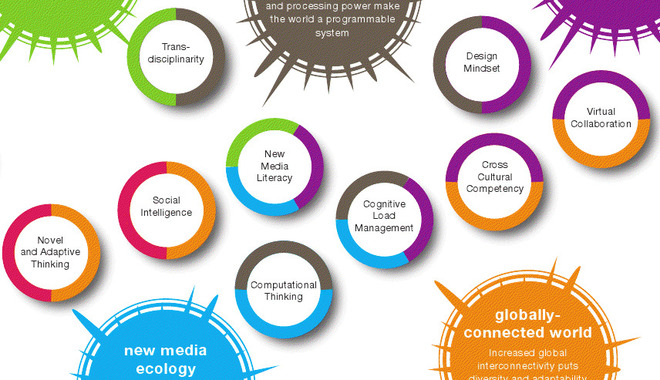
Robin Good: The Institute for the Future and the University of Phoenix have teamed up to produce, this past spring, an interesting report entitled Future Work Skills 2020. By looking at the set of emerging skills that this research identifies as vital for future workers, I can't avoid but recognize the very skillset needed by any professional curator or newsmaster. It should only come as a limited surprise to realize that in an information economy, the most valuable skills are those that can harness that primary resource, "information", in new, and immediately useful ways. And being the nature of information like water, which can adapt and flow depending on context, the task of the curator is one of seeing beyond the water, to the unique rare fish swimming through it. The curator's key talent being the one of recognizing that depending on who you are fishing for, the kind of fish you and other curators could see within the same water pool, may be very different. Here the skills that information-fishermen of the future will need the most: 1) Sense-making: ability to determine the deeper meaning or significance of what is being expressed 2) Social intelligence: ability to connect to others in a deep and direct way, to sense and stimulate reactions and desired interactions 3) Novel and adaptive thinking: proficiency at thinking and coming up with solutions and responses beyond that which is rote or rule-based 4) Cross-cultural competency: ability to operate in different cultural settings 5) Computational thinking: ability to translate vast amounts of data into abstract concepts and to understand data-based reasoning 6) New media literacy: ability to critically assess and develop content that uses new media forms, and to leverage these media for persuasive communication 7) Transdisciplinarity: literacy in and ability to understand concepts across multiple disciplines 8) Design mindset: ability to represent and develop tasks and work processes for desired outcomes 9) Cognitive load management: ability to discriminate and filter information for importance, and to understand how to maximize cognitive functioning using a variety of tools and techniques 10) Virtual collaboration: ability to work productively, drive engagement, and demonstrate presence as a member of a virtual team Critical to understand the future ahead. 9/10 Curated by Robin Good Executive Summary of the Report: https://docs.google.com/viewer?url=http%3A%2F%2Fapolloresearchinstitute.com%2Fsites%2Fdefault%2Ffiles%2Ffuture-work-skills-executive-summary.pdf  Download a PDF copy of Future Work Skills 2020: https://docs.google.com/viewer?url=http%3A%2F%2Fapolloresearchinstitute.com%2Fsites%2Fdefault%2Ffiles%2Ffuture-skills-2020-research-report.pdf  
Pligus is a new free web collaboration and conferencing service which allows you to create a permanent and "persistent" collaboration workspace in which to meet with your contacts.
Plingus works across operating systems, and it integrates video, audio conferencing, white boarding, screen-sharing (Windows only), map sharing and text chat. The free version accomodates up to 4 concurrent users per session, but doesn't allow for private rooms and it is ad-supported. The paid version runs $19/month, can have up to 20 participants, has priority support, private rooms and no ads. Actually, you can even start a collaboration session without even registering.
Very promising.
Find out more: http://pligus.com
What you read is a directly quoted conversation during 14th to 22nd of July 2011 via Anthony Pym's emailing list among a number of professional translators and Translation Studies scholars on why t...
Pligus is a new free web collaboration and conferencing service which allows you to create a permanent and "persistent" collaboration workspace in which to meet with your contacts.
Plingus works across operating systems, and it integrates video, audio conferencing, white boarding, screen-sharing (Windows only), map sharing and text chat. The free version accomodates up to 4 concurrent users per session, but doesn't allow for private rooms and it is ad-supported. The paid version runs $19/month, can have up to 20 participants, has priority support, private rooms and no ads. Actually, you can even start a collaboration session without even registering.
Very promising.
Find out more: http://pligus.com
Pligus is a new free web collaboration and conferencing service which allows you to create a permanent and "persistent" collaboration workspace in which to meet with your contacts.
Plingus works across operating systems, and it integrates video, audio conferencing, white boarding, screen-sharing (Windows only), map sharing and text chat. The free version accomodates up to 4 concurrent users per session, but doesn't allow for private rooms and it is ad-supported. The paid version runs $19/month, can have up to 20 participants, has priority support, private rooms and no ads. Actually, you can even start a collaboration session without even registering.
Very promising.
Find out more: http://pligus.com
Exercices sur les proverbes en espagnol (refranes en español)
"Access to information is a basic human right," said former U.S. President Jimmy Carter, according to the World Bank Institute, at a conference on the subject last year in Accra, Ghana. Information is also power, and more and more organizations are recognizing that it will play an essential role in Africa’s future. Having access to information enables people to do things like take care of their health, understand their rights, start businesses, and participate in political processes.
Whether the government, the private sector or NGOs should deliver development is a question which will not have much relevance unless India's wealth continues to grow to pay for that development. English is one of the advantages India has which are said to be propelling it to economic superpower status.
Goodrae es un diccionario en español que permite hacer búsquedas más complicadas y dinámicas que el de la Real Academia Española. Todos los errores de uso que tiene el diccionario de la RAE, Goodrae los resuelve.
Goodrae es un diccionario en español que permite hacer búsquedas más complicadas y dinámicas que el de la Real Academia Española. Todos los errores de uso que tiene el diccionario de la RAE, Goodrae los resuelve.
Machine translation and quality concerns via @CSA_Research
Cliquez http://anglais.linguistmail.com pour survolter votre anglais. Dans cette vidéo 320 mots de vocabulaire du travail et plus précisément le vocabulaire ...
Hall.com is a new web-based collaboration service which allows you to create a public (or private) conversation hall in which specific topics can be discussed, custom polls, voting and selecting tasks or things to do is made as easy and effective as possible.
Hall.com integrates in fact four on-demand modules to create Polls, Rank items, create To-Do lists and to write Notes collaboratively.
The collaborative spaces created are persistent and each one can have its own custom URL.
The service is free and you can try it out immediately here: http://hall.com/
|
Scoop it Creator
Charles Tiayon
|




